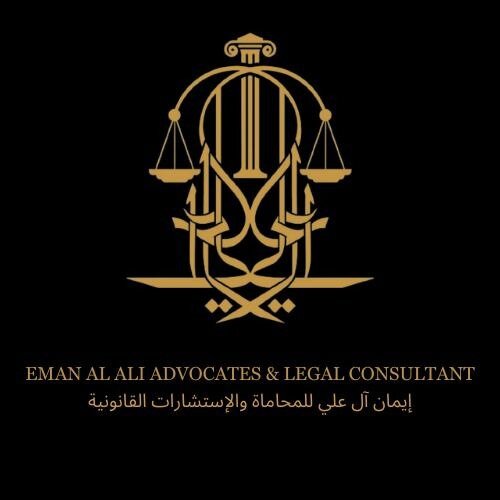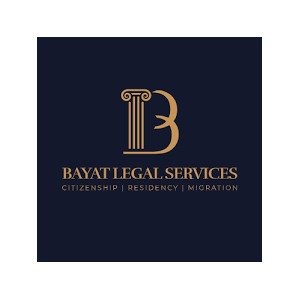Best Tax Increment Financing Lawyers in United Arab Emirates
Share your needs with us, get contacted by law firms.
Free. Takes 2 min.
Or refine your search by selecting a city:
List of the best lawyers in United Arab Emirates

The Black Robe For Legal Consultancy & Debit Collection
1 hour Free ConsultationAbout Tax Increment Financing Law in United Arab Emirates
Tax Increment Financing (TIF) is a financial tool used to subsidize community improvements and infrastructure developments by leveraging future gains in taxes. In the United Arab Emirates (UAE), TIF is gradually being considered as a strategic tool to promote local development, attract foreign investments, and stimulate economic growth. Although not as prevalent as in some Western countries, the UAE is exploring innovative financing models to support its rapid urbanization and expansive infrastructure projects.
Why You May Need a Lawyer
Engaging with Tax Increment Financing in the UAE can be complex due to the legal, financial, and technical intricacies involved. You may need a lawyer if you find yourself in situations such as:
- Navigating local regulations and compliance requirements for proposed TIF projects.
- Negotiating and drafting agreements related to TIF-funded developments.
- Disputing claims or understanding tax implications associated with TIF initiatives.
- Seeking clarity on the governance structure and responsibilities of stakeholders in a TIF district.
- Addressing concerns about funding allocation and project timelines.
Local Laws Overview
Tax Increment Financing in the UAE is influenced by a range of local laws and regulations across various emirates. Key aspects include:
- Tax Regulations: Understanding specific tax laws and potential exemptions or incentives available under TIF agreements.
- Development Land Use Policies: Compliance with land use regulations, zoning laws, and master plans for designated TIF areas.
- Public-Private Partnership (PPP) Legislation: Legal frameworks governing collaboration between government entities and private developers.
- Financial Laws: Adherence to rules governing funding, debt, and financial reporting obligations specific to TIF projects.
Frequently Asked Questions
1. What is Tax Increment Financing?
Tax Increment Financing is a development financing mechanism that uses future tax revenue from an increase in property values to finance infrastructure improvements and other projects.
2. Is TIF widely used in the UAE?
Though TIF is not yet widely adopted in the UAE, it is being explored as part of innovative finance solutions for urban and infrastructure development.
3. Can TIF be used for residential development projects in the UAE?
Yes, TIF can potentially be used for residential projects, especially those linked to broader urban development and renewal initiatives that align with public policy objectives.
4. What kinds of projects qualify for TIF in the UAE?
Projects that typically qualify include infrastructure improvements, community facilities, commercial developments, and mixed-use urban revitalization efforts.
5. Who governs and regulates TIF projects in the UAE?
TIF projects are generally regulated by relevant municipal or governmental bodies, with oversight from local authorities and compliance with national laws.
6. How are TIF funds typically allocated?
TIF funds are allocated based on the increase in tax revenues generated from the enhanced property values, and are often used for infrastructure, public utilities, and other development expenses.
7. Are there risks associated with TIF in the UAE?
Yes, as with any financial tool, there are risks including financial mismanagement, potential legal disputes, and delays in anticipated project benefits.
8. Can foreign investors participate in TIF projects?
Foreign investors can participate, particularly if the projects have significant local or national economic impact and adhere to foreign investment regulations.
9. How can disputes in TIF agreements be resolved?
Disputes can often be addressed through negotiation, mediation, or legal action, subject to the agreement terms and applicable jurisdiction laws.
10. What are common challenges faced in implementing TIF in the UAE?
Challenges include regulatory compliance, securing long-term financial commitments, stakeholder coordination, and aligning with urban development goals.
Additional Resources
For more insights and assistance, consider reaching out to the following resources:
- The UAE Ministry of Finance for official guidelines on financial regulations.
- Local municipal government offices for region-specific TIF programs and projects.
- Industry associations such as the Middle East Council of Shopping Centers & Retailers.
- Legal firms specializing in property development and finance law in the UAE.
Next Steps
If you are considering engaging with TIF projects or need legal assistance related to Tax Increment Financing in the UAE, follow these steps:
- Research: Gather information specific to your region and project type.
- Consultation: Schedule a consultation with a legal expert specializing in TIF and real estate law in the UAE.
- Documentation: Prepare necessary documents, agreements, and financial statements for legal review.
- Compliance: Ensure all regulatory and legal requirements are met prior to proceeding with any TIF initiative.
Lawzana helps you find the best lawyers and law firms in United Arab Emirates through a curated and pre-screened list of qualified legal professionals. Our platform offers rankings and detailed profiles of attorneys and law firms, allowing you to compare based on practice areas, including Tax Increment Financing, experience, and client feedback.
Each profile includes a description of the firm's areas of practice, client reviews, team members and partners, year of establishment, spoken languages, office locations, contact information, social media presence, and any published articles or resources. Most firms on our platform speak English and are experienced in both local and international legal matters.
Get a quote from top-rated law firms in United Arab Emirates — quickly, securely, and without unnecessary hassle.
Disclaimer:
The information provided on this page is for general informational purposes only and does not constitute legal advice. While we strive to ensure the accuracy and relevance of the content, legal information may change over time, and interpretations of the law can vary. You should always consult with a qualified legal professional for advice specific to your situation.
We disclaim all liability for actions taken or not taken based on the content of this page. If you believe any information is incorrect or outdated, please contact us, and we will review and update it where appropriate.
Browse tax increment financing law firms by city in United Arab Emirates
Refine your search by selecting a city.
















